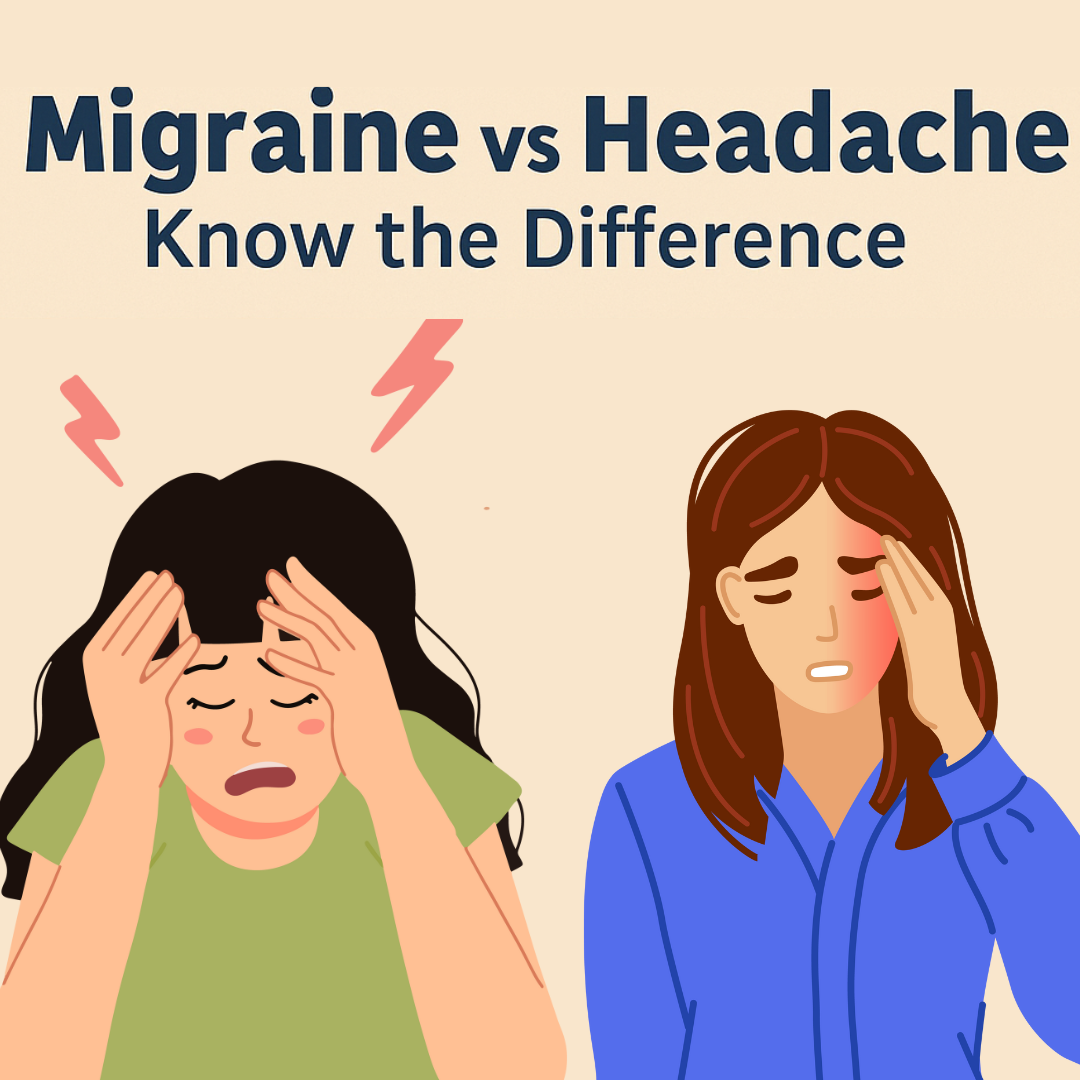Everyone gets headaches now and then — due to stress, lack of sleep, dehydration, or work pressure. But if your headache is intense, recurring, and affecting your daily life, it could be more than just a headache — it might be a migraine.
At Octavia Hospital, many patients come to us confused between a regular headache and a migraine. Let’s help you understand the difference, so you can get the right diagnosis and right treatment.
💭 What Is a Headache?
A headache is pain or discomfort in the head, scalp, or neck. It can range from mild to severe and typically goes away with rest, hydration, or over-the-counter medicine.
Common causes of headaches:
- Stress or tension
- Dehydration
- Skipping meals
- Sinus congestion
- Poor posture or screen time
Features of a general headache:
- Dull or aching pain
- Pressure around forehead or temples
- Usually short-lived
- Not accompanied by other symptoms
🌩️ What Is a Migraine?
A migraine is a neurological condition that involves recurring, throbbing headaches, often on one side of the head. It can last 4 to 72 hours and may be disabling for many people.
Common migraine symptoms:
- Throbbing or pulsating pain (often one-sided)
- Nausea or vomiting
- Sensitivity to light, sound, or smell
- Blurred vision or “aura” before the pain starts
- Fatigue, irritability, or mood changes
Migraines may be triggered by:
- Hormonal changes
- Certain foods (like chocolate, cheese, caffeine)
- Sleep disturbances
- Weather changes
- Stress or strong smells
🤔 How to Tell the Difference?
| Feature | Headache | Migraine |
| Pain type | Dull, constant | Throbbing, pulsing |
| Location | Both sides of head or forehead | Usually one side |
| Duration | Few minutes to few hours | 4 to 72 hours |
| Other symptoms | Rarely | Often includes nausea, aura, sensitivity |
| Intensity | Mild to moderate | Moderate to severe |
| Effect on daily life | Usually manageable | Can be disabling |
🩺 When to See a Doctor?
If you experience:
- Headaches more than 2–3 times a week
- Severe pain that interrupts your daily life
- Visual changes or difficulty speaking
- Overuse of painkillers with little relief
👉 It’s time to consult a neurologist.
At Octavia Hospital, our experienced specialists can help you identify whether you’re experiencing migraines or another condition — and recommend an effective treatment plan.
👨⚕️ Treatment Options
- Headaches: Often managed with rest, hydration, stress reduction, and simple painkillers.
- Migraines: May require prescription medication, lifestyle changes, trigger management, and preventive therapies.
✅ Final Word
Not all headaches are migraines — and not all migraines are “just headaches.”
Knowing the difference helps you get the right care and prevent long-term discomfort.
If frequent headaches are affecting your quality of life, don’t ignore them.
📞 Book your consultation at Octavia Hospital today — and let our experts help you live pain-free.





